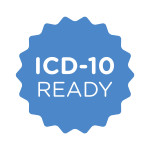 It is quite clear that ICD-10’s impact isn’t just limited to coding. Implementing ICD-10 has an effect on an entire health system, and will particularly impact the whole revenue cycle for health care providers.
It is quite clear that ICD-10’s impact isn’t just limited to coding. Implementing ICD-10 has an effect on an entire health system, and will particularly impact the whole revenue cycle for health care providers.
Most of the focus by providers has been on implementation of ICD-10 and training staff in its use, which is understandable — many organizations were on a time crunch with this fall being the implementation deadline. However, it’s especially important for people handling high-dollar claims to pay special attention to how the new system affects the revenue cycle.
Of course, it’s important to discuss exactly what the revenue cycle is when it comes to the health care field. The health care revenue cycle comprises all clinical and administrative functions that contribute to the management, capture and collection of patient service revenue. This means the revenue cycle includes a wide variety of functions that must be performed at specific, optimal levels by all the managers, staff and providers involved.
The entire revenue process includes such tasks as pre-registration and scheduling, registration, clinical services, billing and collections and DNFB.
One example of an area that will be affected by ICD-10 is clinical documentation. To be able to ensure clinical documentation is done appropriately, it is absolutely imperative to perform a detailed analysis of all clinical documentation processes to pinpoint circumstances in which extra information is necessary to assign the correct ICD-10 code. Results of this analysis can then be used to target certain initiatives for improving clinical documentation. This includes not just training caregivers and physicians in methods of documentation, but also evaluating and improving documentation templates that are in electronic medical records systems.
Another area that will be affected by ICD-10 is contract management, billing and reimbursement. Moving to ICD-10 requires all providers to describe their patients’ conditions in new ways, and forces them to refer to new guidelines for coding and follow new documentation guidelines for reimbursements. In many situations, ICD-10 classifies procedures and conditions differently than the old ICD-9-CM system did. Therefore, converting some of the more complex payment methods from ICD-9-CM to ICD-10 could have the unintended result of impacting aggregate payments to providers or the way payments are distributed across providers.
These are just a couple examples of how ICD-10 will impact the revenue cycle. It’s important for providers to be prepared for these impacts and account for them in their processes.
About Howell Consulting Group
Howell Consulting Group provides healthcare consulting services to hospital and physician practices nationwide. Our key focus areas are revenue cycle management, health information technology, and revenue cycle billing and collections.
HCGs consultants are highly experienced in all aspects of healthcare financial management. We implement revenue cycle best practices to optimize your receivables performance and maximize your cash flow.
To learn more about how we can help you, contact us to set up a zero risk blanket assessment today! Request a Consultation →
